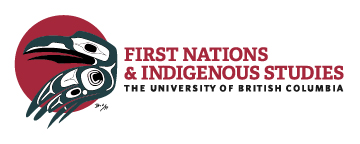Session 1: Linc Kesler, 11 April 2019 Linc Kesler discusses his experiences as the initial Director for the First Nations Studies Program, the Director of the First Nations House of Learning, and the Advisor to the President. He expands upon administrative barriers and successes around the Indigenous Strategic Plan, campus TRC events, and the showcasing of the original WILICT project. He considers the necessary factors for sustainable change and provides recommendations for all members of the UBC community to take action. |
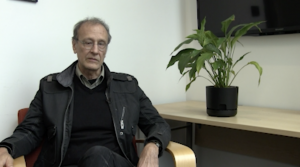 |
|
Session 2: Paige Raibmon, 7 August 2019 Paige Raibmon discusses the intricacies of creating a safe and productive classroom environment for Indigenous and non-Indigenous students at UBC. She emphasizes the long-term nature of relationship- and trust-building as well as the importance of adopting an ‘interventionist role’ to set the tone for respectful dialogue. Raibmon holds up the positive shift in student responses to Indigenous topics at the same time as she acknowledges the potential of these conversations to do harm. She shares specific classroom activities and strategies to gauge student knowledge levels and encourage self-reflection. |
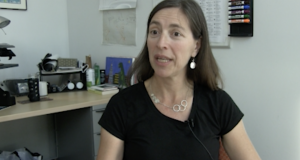 |
| Session 3: Aftab Erfan, 25 April 2019
Aftab Erfan shares promising practices for instructors seeking to integrate Indigenous content into their curricula and create anti-oppressive learning environments. While it is the instructor’s responsibility to self-educate on Indigenous topics, she urges instructors to relinquish the fear of failure from inhibiting engagement with this content by practicing an ethic of humility and vulnerability. Erfan shares several memorable experiences with Indigenous engagement in the classroom and expands upon the importance of emotionality and relationship building. |
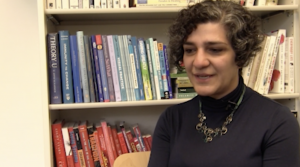 |
| Session 4: Christina Hendricks, 8 May 2019
Christina Hendricks begins by observing a general increase in awareness around equity and inclusion among faculty and suggests that all settler educators have a responsibility to integrate Indigenous content into their classes. Hendricks provides strategies to work with fear and anxiety around curriculum reform and recommends positionality work, attending workshops, self-reflection, and community building between colleagues as essential to this process. |
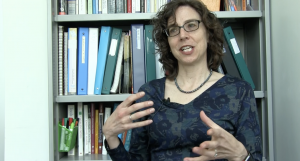 |
| Session 5: Janette Bulkan, 21 May 2019
Janette Bulkan reveals the intricacies of Indigenous representation in the Faculty of Forestry and discusses structural barriers such as knowledge gaps in large class sizes. She calls for the integration of Indigenous curriculum in all forestry courses and cautions against Indigenous student tokenization. Bulkan comments on the increase of public awareness of Indigenous issues and shares her childhood encounters with colonialism. |
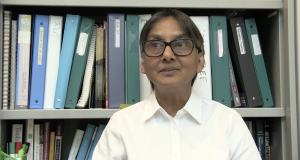 |
| Session 6: Dory Nason, 26 June 2019
Dory Nason shares her experiences as an Indigenous instructor in several UBC departments to outline specific techniques in managing difficult classroom conversations. Many of Nason’s Indigenous students continue to relate to the problematic incidents outlined in the original WILICT project and, as such, Nason calls for deeper engagement and the development of teaching capacity across the University. Nason normalizes the presence of intense emotions around these topics by sharing that despite being an expert in the field, she too feels nervous when teaching contemporary issues and Indigenous-settler histories. |
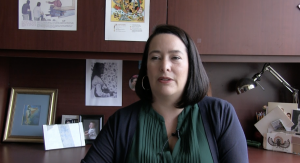 |
| Session 7: Sarah Hunt, 7 August 2019
Sarah Hunt pulls from her experiences as an Indigenous student, staff, and faculty member at UBC to discuss Indigenous-settler dynamics in the classroom. She addresses the challenges of teaching across different knowledge backgrounds and the influence that students’ positionalities have on the focus and depth of classroom conversations. One story that Hunt shares centers around the necessary steps to integrate Indigenous content into curricula: she recommends considering whose voice is being granted authority in reading materials, whether the information is being conveyed holistically or with an additive/pan-Indigenous approach, and who this conversation will affect in the classroom. |
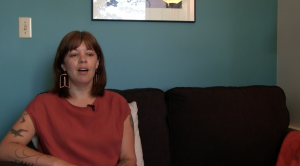 |
| Session 8: Mark Turin, 8 August 2019
As a settler-scholar in the First Nations and Endangered Languages Program, Mark Turin reflects on the importance of reciprocal and collaborative relationships in the classroom and on campus more broadly. Turin notes that it is the instructor’s responsibility to ensure that the learning goals of Indigenous students are being prioritized as much as those of non-Indigenous students; and he shares a memorable moment where the interactions between settler international students and Indigenous students created an environment for mutual growth and learning. He addresses both new and tenured faculty members around their respective roles in furthering Indigenous initiatives across campus. |
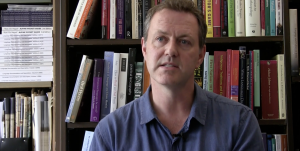 |
| Session 9: David Gaertner, 12 November 2019
A large part of David Gaertner’s focus at UBC has been towards pedagogy related to Indigenous issues and, as a non-Indigenous scholar, Gaertner discusses teaching strategies around positionality and vulnerability. He articulates the importance of decentering white students in order to create space for students of colour and Indigenous students. Insomuch as Gaertner has observed an increase in settler engagement in FNIS courses, he is concerned with how students will convey this knowledge outside of the classroom. |
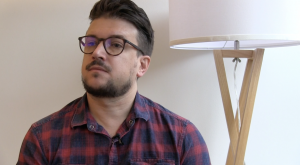 |
| Session 10: Patricia Barkaskas, 4 December 2019
Speaking as a practicing lawyer, Patricia Barkaskas discusses the barriers and opportunities for growth as an Indigenous instructor in the Allard School of Law. She recounts a challenging moment in order to exemplify the physical and emotional burden placed on Indigenous faculty and staff to address problematic incidents. Barkaskas advocates for administrative change in creating structural supports for Indigenous people at UBC and environments that foster productive conversation rather than silence. |
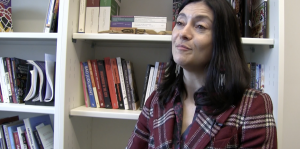 |
| Session 11: Coll Thursh, 8 December 2019
Coll Thrush describes how his own teaching practices as well as the pedagogical practices of the History Department and Critical Indigenous Studies more broadly have shifted since he participated in the original WILICT project in 2008. To address key challenges in the classroom, Thrush deploys a strategy of vulnerability by acknowledging his positionality, breaking down the facade of instructors expertise and thus decentralizing the power and knowledge, and by voicing Indigenous students do not have to bear the intellectual and emotional burden of educating their peers. He recounts two classroom incidents that were each sparked by a students’ problematic statement and which illustrate the instructors’ ‘responsibility to pay attention to the more affective side of the educational experience.’ These teachable moments show the balance between calling students in to generative discussions while also shutting down harmful comments. Thrush speaks to the increased responsibility of tenured professors, like himself, to do this work, especially within departments not centrally in the field. Lastly, Thrush queries the effect the current political climate may have on the positive moment the university has gained in recent years. |
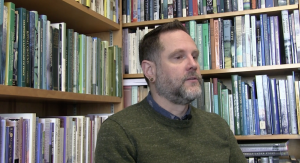 |
The University of British Columbia
Vancouver campus

